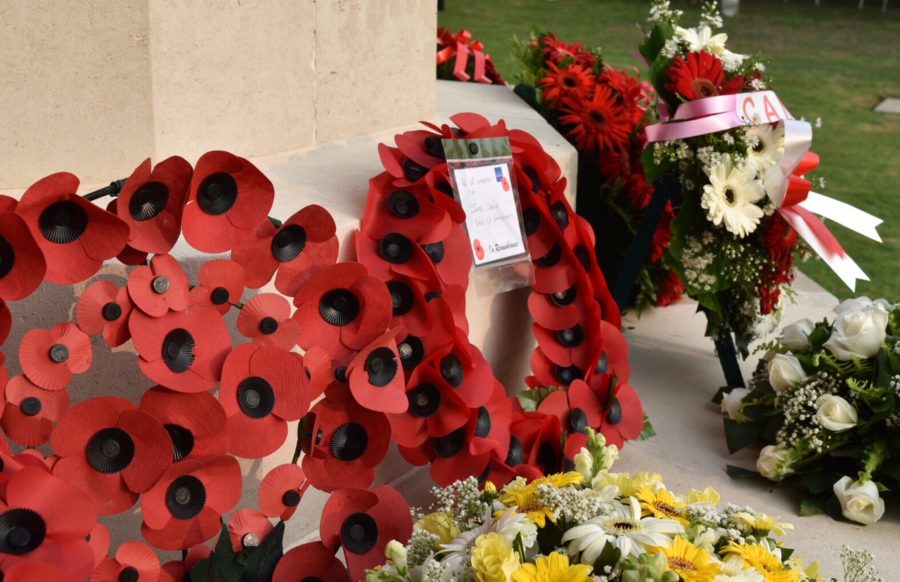On Friday 11 November, we held our usual ceremony for Remembrance Day. The Commonwealth War Graves enclosure of the Liveramentu cemetery on Torrington Road was as serene as ever.
The headstones are a startling white against the immaculate green grass. The tropical sun beats down. Birdsong fills the two minute silence. The reading from Kenny Martin’s 2003 “I do not know your name” captured the spirit of the day:
…We cannot know, we were not there, it’s beyond our comprehension
To know the toll that battle brings, of resolute intention
To carry on, day by day, for all you loved and hoped for
To live in peace a happy life, away from bloody war
For far too many, no long life ahead, free of struggle and pain and the gun
And we must remember the price that was paid, by each and every one
Regardless of views, opinions aside, no matter how each of us sees it
They were there and I cannot forget, even though I did not live it…
Over two thousand Commonwealth soldiers, sailors and airmen are buried in Sri Lanka’s six Commonwealth War Graves, from the First and Second World Wars. Ceylon, as it was then, both contributed troops and was an important naval and air base, as well as the location of many military hospitals.
Winston Churchill famously declared that the most dangerous moment of the war was when the Japanese fleet advanced on Ceylon in April 1942. They were spotted by Canadian Squadron Commander Leonard Birchall, flying a Catalina reconnaissance mission some 250 miles south east of Sri Lanka. Birchall just managed to report the presence of the fleet in Sri Lankan waters before he was shot down. Most of the British fleet reached safety in time, and the island did not fall.
Birchall survived the war, albeit in a prisoner of war camp, but not all his comrades did the same. I laid a wreath last month at the Koggala Airfield where they are remembered, and heard about the string of coincidences that led to Birchall being in the air at the critical time. It was also from Koggala that the Royal Australian Air Force took off for what was then the longest non-stop air route of any airline, over 3,500 nautical miles to Western Australia.
Navigating without radio, the crews relied on compass and stars to fly safely across the Indian Ocean, a 27-33 hour flight, during which they watched the sun rise twice. The service made 271 crossings in three years.
Second World War veterans were particularly honoured participants at the Remembrance Day commemoration, as was the grandson of Lord Mountbatten’s only Sri Lankan ADC. Those who have seen war are those who most value peace.

